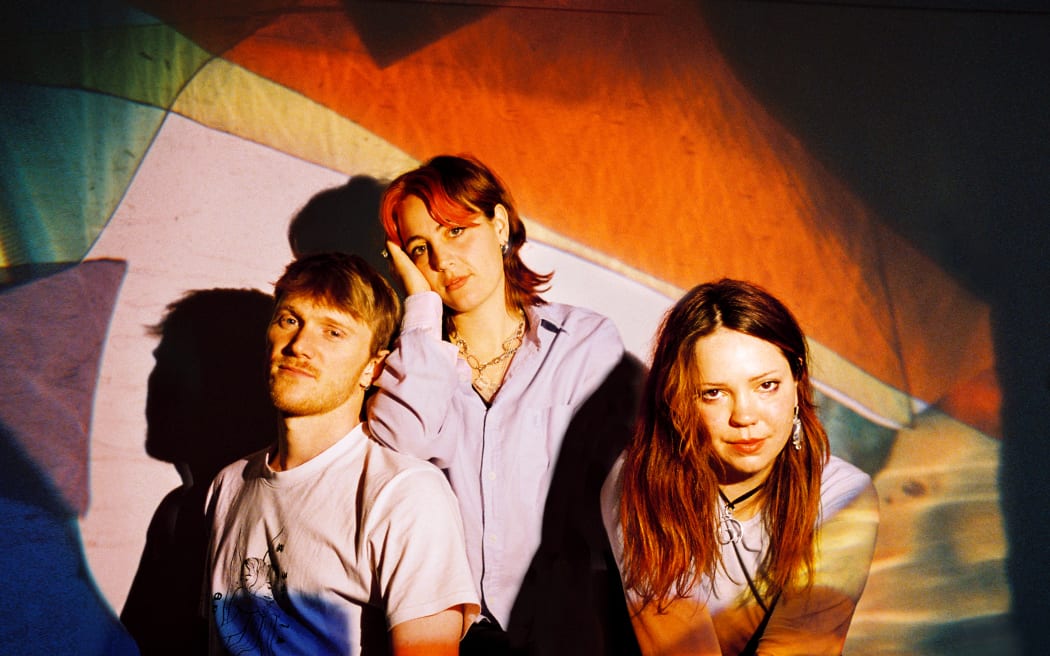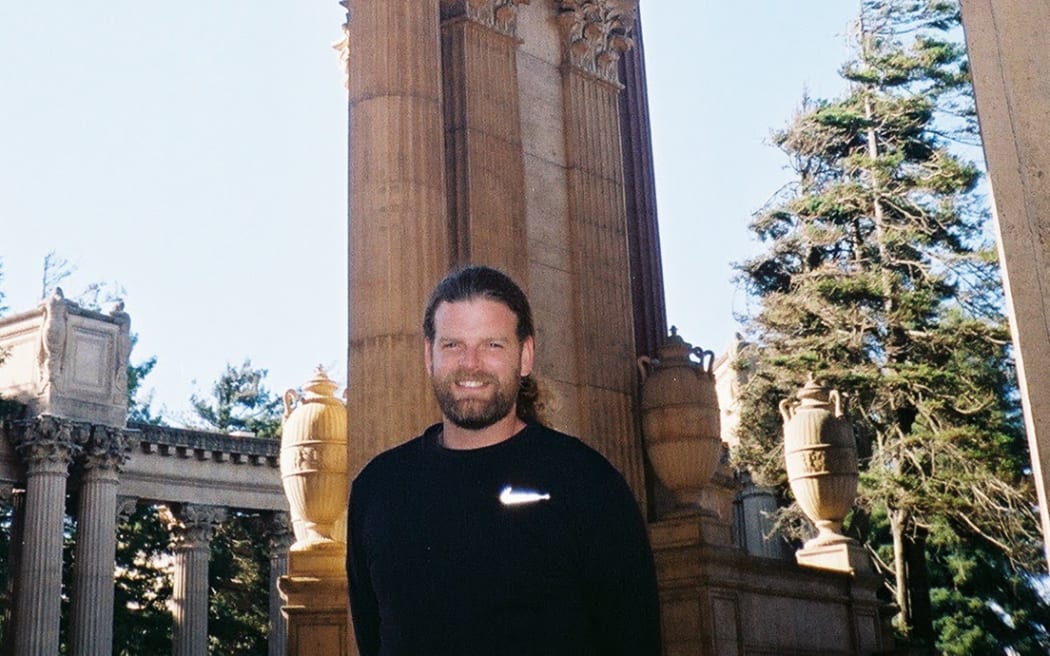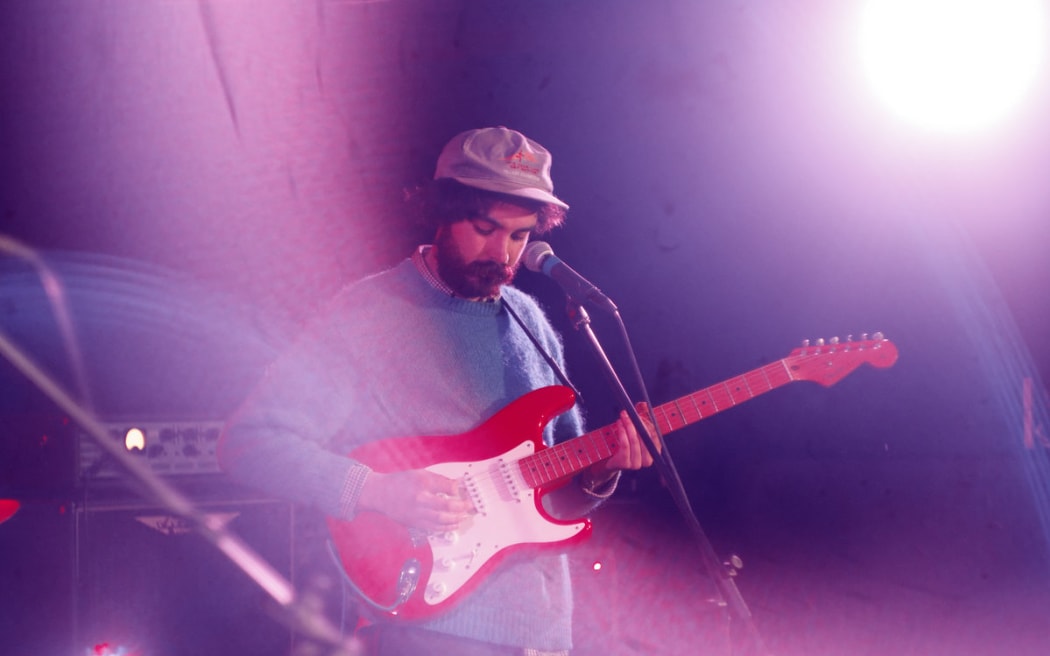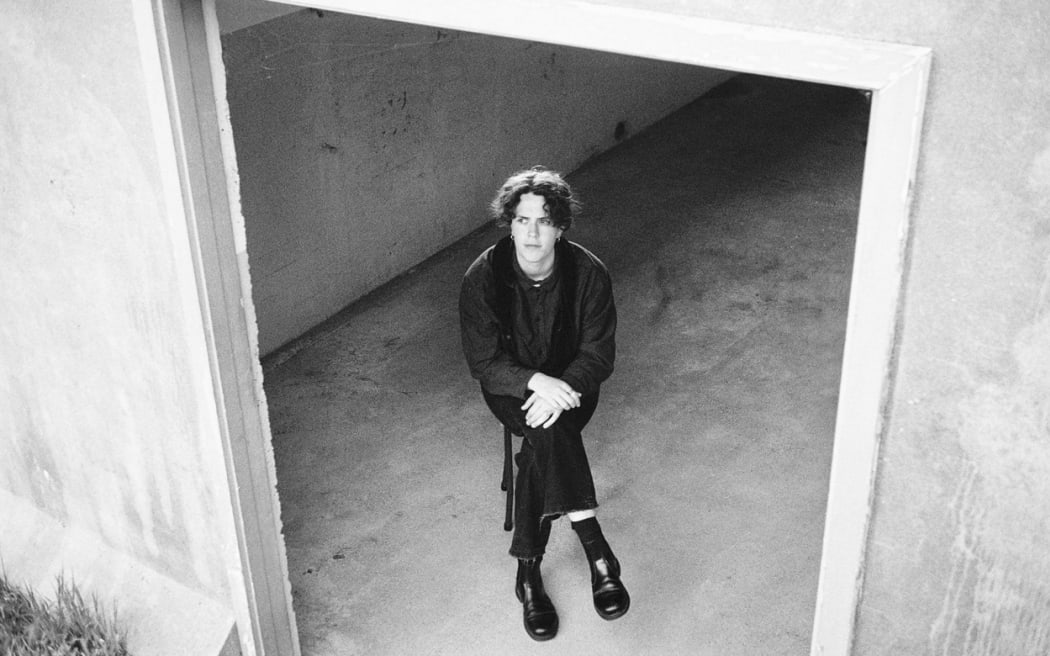Tony Stamp catches up on four local releases from around the country.
Dreaming of the Future Again by Womb

Photo: Nicola Sandford
Using art to emulate dreams is a time honoured tradition, and a cyclical one - both spring from our subconscious, and are largely attempts to process our waking lives. And music might be the easiest way to access them, being ephemeral in a way visual mediums aren’t.
It makes perfect sense that Pōneke band Womb would draw inspiration from dreams for their third album - the adjective most often affixed to their songs is surely ‘dreamy’.
The album's title is a phrase that singer Cello Forrester woke up with in their mind one day. On the track 'Like in a Dream' they seem to run through a list of past dreams that involve a partner, before the coup de gras - “I’m trying to move forward but you’re still by my side”.
It’s at that moment, touching on the way our subconscious can hold onto things, that a vocal melody enters, a great example of the way this band does a lot with a little. It’s music that’s sluggish and sparse by design, and more beautiful for it.
This album is slightly more inviting than their debut, perfecting the balance between Cello’s mournful vocals and instruments with a bit more warmth to them. On ‘Oceans’ the main vocal melody sits on just a few notes, but everything else is dynamic and playful.
It was produced in collaboration with Bevan Smith, who makes electronic music as Signer, and is a member of Glass Vaults. Womb are clearly interested in tinkering with sound design on these tracks, and each is treated differently - the way the drums pop on ‘Oceans’ is a good example.
This aspect reaches its apex on ‘The Dove’, gorgeously made up of layers of Cello’s modulated voice. It pulls at a thread spun by modern RnB and its use of autotune, but feels perfectly placed here.
Womb employ electronic elements throughout Dreaming of the Future Again, but crucially they always sound like a band. The slight imperfections that come from live playing are the beating heart of the record, with songs that are melodically minimal but beautifully written. They romanticise a certain type of melancholy in a way few other bands do, and it’s an inviting mix of chilliness and warmth.
Get Me Off This Sphere by Zane 2000

Photo: Supplied
Ōtautahi musician Jonty O’Connor has already had a distinguished career behind the drum kit - his CV lists the likes of Scribe, Kane Strang and Delaney Davidson - and recent years have seen him prove himself an instrumental all-rounder under the pseudonym Zane 2000.
His debut full length Get Me Off This Sphere is often as acerbic as that title might suggest, and it’s also frequently funny. What grabbed me though is his ability to move through different musical forms and imbue them with his slightly anarchic personality.
‘The Businessman’ channels Italian Spy films over a rollicking breakbeat, its real masterstroke being that catchy synth melody. It feels like a perfect example of the form, an update of 90s big beat.
Zane 2000’s first EP was Computer Rock, and those two words let you know what you’re in for here. His use of vocoder and synths over live drums sometimes reminds me of the band Trans Am, as on the gothic, Philip K Dick- referencing, ‘Electric Sheep’.
There’s wry wit throughout, but the funniest song is ‘Hot Dog’, a manic ode to what’s described here very literally as ‘meat on a stick covered in batter’, over a driving rhythm dotted with catchy synth runs.
Elsewhere on Get Me Off This Sphere Zane 2000 flirts with synth pop, vaporwave, LA beat and more, and his restlessness is a big part of the allure. The album showcases his drumming, as it should, but it’s by no means the focus. Even on the instrumental tracks an irreverence shines through, including more serious songs like ‘Thank You Demi’, which layers harmonies to lovely effect.
It’ll All Work Out by Fazed on a Pony

Photo: Supplied
Songwriter Peter McCall and his outfit Fazed on a Pony released their debut EP in 2019, and after a three year wait have delivered its full-length followup. It’s a collection that veers close to Neil Young-ish country, with acoustics alongside distorted guitars, but McCall’s songwriting is its own beast, at times downright existential, at others content to name a song ‘Faithful Ham’, and another after a cheeky native bird.
‘Pīwakawaka’ is one of the jauntier numbers here, and a great example of a songwriter at ease, slinging what the press release accurately sums up as “Dunedin diphthongs amongst Southern U.S. guitar-twang”. It’s the conversational lyricism that raises this above similar acts for me, as well as McCall’s reedy voice, at times evoking the sadly departed Mark Linkous of Sparklehorse, and elsewhere, like ‘North Road’, something more stately and solemn.
In that song McCall drops the lines “Fangin’ it down North Road" and "The gold in the hills is just gorse”. On "Glass" he sings “every day it feels like I’m pouring myself into a glass that gets smaller and smaller”.
These nuggets of genius lyricism stopped me in my tracks, but they’re just part of the pleasures to be found on this accomplished album.
Between Bodies by Hannah Everingham

Hannah Everingham Photo: Supplied
The range of options for how to colour your music is basically boundless these days, so I’m always impressed when I hear something that makes distinct, deliberate choices for each song. As an example, the first track on Hannah Everingham’s debut, 'So Long Underground', doesn’t need to include Parisian accordion, lilting trumpets, or a constant percussion loop, but she’s considered and committed to this arrangement, and the song is better for it.
Everingham hails from Ōtautahi, and along with her collaborators has crafted an album that revels in aural detail. Her songs would more than hold up without all these accoutrements, but they provide an extra layer of enjoyment - ‘Sweet Train to Geraldine’ floats over a layer of Latin percussion, ‘Antipodes’ luxuriates in trilling pianos and swelling reverb, and ‘Go On’ is gauzy, Stereolab-adjacent Krautrock.
Two songs late on the album are sparser, but just as considered, and allow her voice to swoop over the arrangements: firstly ‘The Plains’ and its ethereal strings, and following that the stripped-back ‘Mirage’, haunting and heartbreaking. Again it's expertly arranged, with subtle acoustic bass and piano creeping in softly, and reverb that swells and then drops away to nothing, cushioning Everingham’s stunning vocal performance. It evokes some of our finest local folk musicians, and is absolutely worthy of inclusion alongside them.

